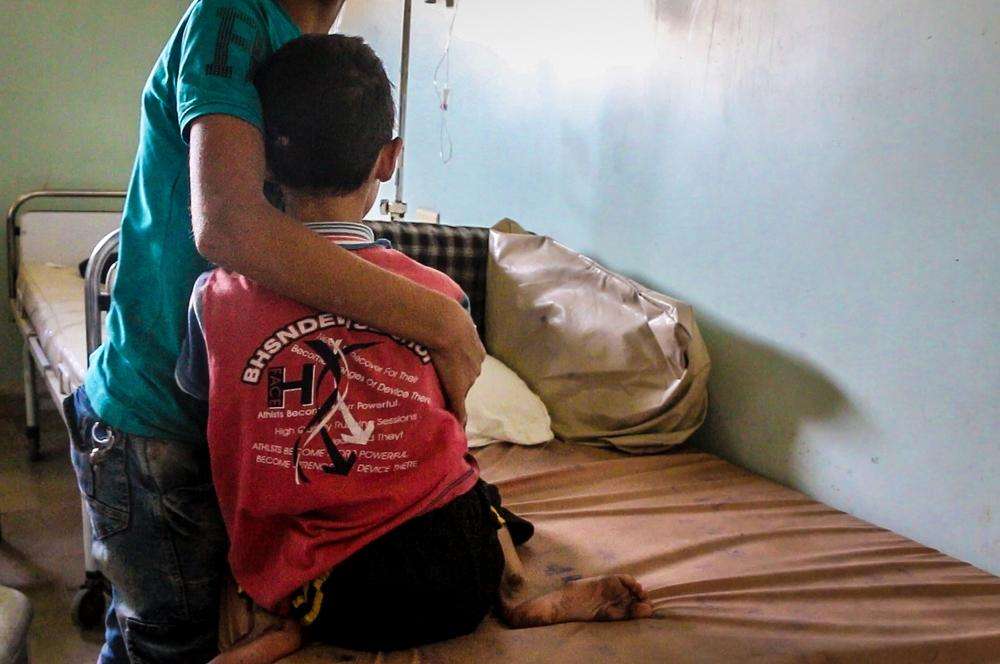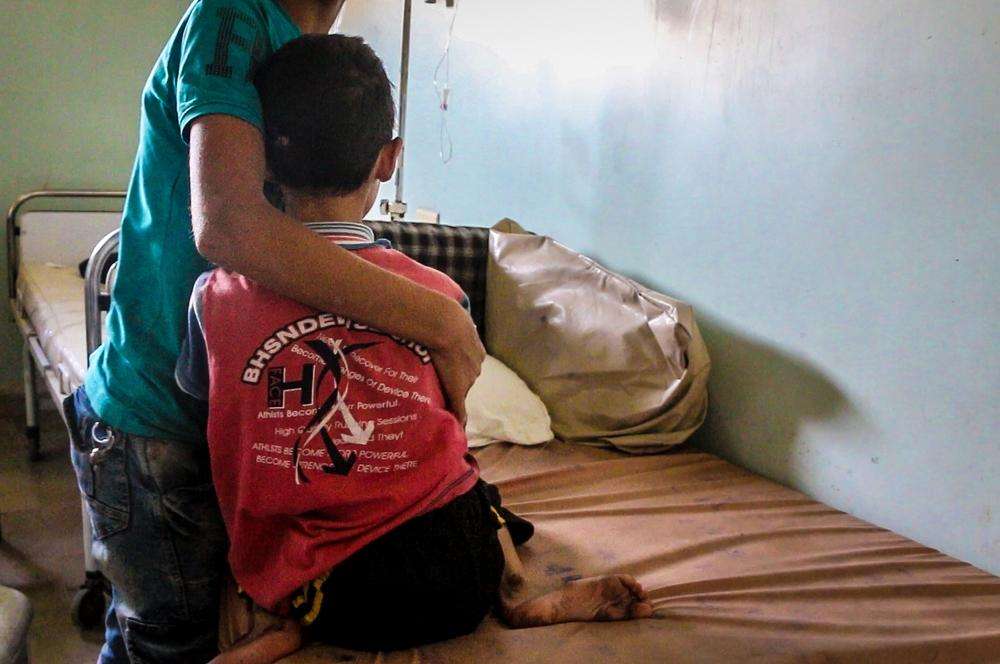It was just after lunch on a day in late September. Nine-year-old Abdul Hadi was playing in front of his house in eastern Aleppo when a barrel bomb fell from the sky. Hadi was knocked unconscious and sustained injuries to his head. Days later, Syrian and Russian forces stepped up their bombing campaign on the besieged part of the city.
In the hospital, Hadi was put straight on a ventilator. “He was almost dead by the time we reached the hospital but, thanks be to God, he made it,” says Hadi’s mother. But when he regained consciousness, it became apparent that Hadi had lost his memory. “His mind has gone blank and he can’t feel anything,” she says. Unable to feed himself, his mother now feeds him with a syringe.
“This child needs a CT scan, but we don’t have the machine to do it. The roads are closed and we live under siege.”
The damage to Hadi’s skull also brought on convulsions, but a brain scan is out of the question, as there is no such equipment in besieged eastern Aleppo.
“This child needs a CT scan,” says hospital nurse, Abu Yazan. “But we don’t have the machine to do it. The roads are closed and we live under siege.”
Before the siege was imposed last July, patients needing specialized treatment were referred to hospitals elsewhere in northern Syria or over the border in Turkey. But for most of the past four months, all roads out of the city have been blocked, leaving many patients unable to reach critical specialized care.
Medical Needs Increase While Resources Dwindle
Since the aerial attacks have stepped up in Syria, at least 2,209 people have been wounded, including at least 468 children. The severity of many people’s injuries makes the lack of specialist equipment all the more desperate.
Equally devastating is the shortage of specialist medical staff—out of the 35 doctors left in east Aleppo, only seven are surgeons with the skills to operate on the wounded. “We are under heavy bombing in eastern Aleppo, and we receive many patients with neurological and vascular injuries,” says Yazan. “They need to be transferred out of Aleppo because there are no specialized doctors to treat them here.”
Medical supplies and drugs to treat some conditions are also running out. “We don’t have any medicines for neurological disorders,” says Yazan, while stocks of drugs to treat cancer, tuberculosis and hepatitis have depleted.
A fuel shortage as a result of the blockade increases the difficulties for medical staff in the seven hospitals still functioning in eastern Aleppo. To conserve fuel, generators now run for just four hours a day, and Yazan says that some equipment, such as oxygen generators, are now out of action as a result.
“We are suffering a lot from the shortages,” says Yazan. “There are so many critical patients who need to be transferred out of east Aleppo, but there’s no route out of the city, and we are suffering so much.”
Read More: Latest Attacks on Eastern Aleppo Hospitals Leave Medical Care in Shambles





